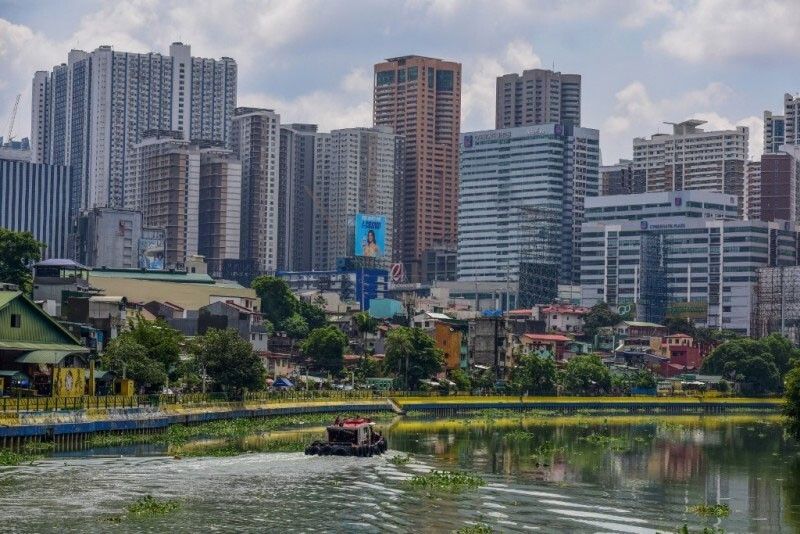Seizing the momentum to build an investment-friendly environment

Last November 11, President Ferdinand Marcos Jr. signed into law the Corporate Recovery and Tax Incentives for Enterprises to Maximize Opportunities for Reinvigorating the Economy (CREATE MORE) Act.
This is another significant step in enhancing the Philippines’ competitiveness as an investment destination. The CREATE MORE Act expects to make the Philippines a more regionally competitive investment destination through added tax incentives, streamlined processes and government accountability.
The law builds on the reforms initiated through the previously signed CREATE Act, or RA No. 11534, which lowered the Philippines’ income tax to 20% for small businesses, and 25% for large corporations.
With the CREATE MORE Act, the government aims to make the Philippines more competitive, investment-friendly, predictable, and accountable through the introduction of new policies, and the amendments of existing ones.
Key highlights include provisions under the law which aims to improve ease of doing business, provide clarification on value-added tax (VAT) rules, and transitory rules, strengthen governance and accountability, and enhance the tax incentive competitiveness.
Particularly, under the new law, the Enhanced Deduction Regime (EDR) will improve tax incentive competitiveness through reforms such as reducing the corporate income tax rate to 20% from 25%, doubling the additional deduction for power expenses from 50% to 100%, and allowing 50% additional deductions for reinvestments in the tourism industry and expenses related to the conduct of trade fairs or trade missions, among others.
It is reassuring that the Marcos administration shows it is fully cognizant of the importance of investments to our economy. Investments bring jobs and income, create economic activity and allow Filipinos to improve the quality of their lives over the long term.
To be sure, this is not the first legislative initiative toward this end. CREATE MORE builds on the previous policy reforms aimed at boosting investments. There have been other laws passed aimed at encouraging investments.
But some remain pending. The government must not lose momentum as it institutionalizes measures to make the Philippines a true investment hub. The end goal here could be creating a system of laws complimenting each other which will lead to greater investment in the country.
As of September 2024, the Board of Investments (BOI) has approved 225 investment pledges worth P1.35 trillion, which has already surpassed 2023’s total, with the majority of the approved investments in the energy sector, mainly in renewable energy.
Other top sectors were real estate; manufacturing; agriculture, forestry and fishing; and administrative and support services. Notably, the government has seen increased investments in renewable energy projects after it has allowed full foreign ownership in the sector, which was previously limited to 40%.
Furthermore, last month, the BOI expressed optimism that it will achieve its target of P1.6 trillion worth of investment pledges approved for the entire year. It is banking on the expected influx of foreign investments in the country's renewable energy and infrastructure sectors by the end of the year.
According to the BOI, renewable energy projects seeking green lane endorsement alone could help the investment promotion agency hit its goal for the year.
**
The country has truly made significant progress in enhancing its policy environment to attract investments. Policy reforms such as the Executive Order No. 18 that created “green lanes” for strategic investments, Republic Act No. 11032 or the Ease of Doing Business and Efficient Government Service Delivery Act of 2018, and the amendments to the Public Service Act, Foreign Investments Act, and the Retail Trade Liberalization Act has been crucial in establishing a favorable environment for strategic investments.
All these contribute to the overall objective of putting in place systems that would show the Philippines is serious about being a haven for foreign investments.
The government recognizes that investments drive job creation and increased productivity. By continuing its efforts in creating a conducive environment for investors, such as implementing business-friendly policies, improving the ease of doing business, and streamlining regulatory processes, the government can support businesses in their efforts to thrive and expand.
Providing incentives and reducing bureaucratic hurdles will not only attract more investments but also create a more robust and sustainable economy.
Reforms like the CREATE MORE Act have laid the foundation for a more business-friendly environment in the Philippines. In order to capitalize on this, the current administration should continue supporting key legislation that would further promote the country as an attractive destination for investments, cementing an investment-led and job-generating growth for the Philippine economy.
Achieving sustainable economic growth does not just happen. It requires a careful assessment of a country’s strengths and even weaknesses, and an identification of core advantages which we can develop and bank on.
Philippine leaders are aware of the capacities of its workforce, its prime location, and the potential offered by its natural resources. They have put in place, or are in the process of putting in place, policies that build on these inherent strengths in order to attract foreign investments. Investors can look at these laws and see for themselves how serious the Philippines is in its bid to be an investment hub.
In the end, the drive toward investment-led growth will benefit the Filipino people and the country as a whole. People will be able to contemplate a brighter future for their families and enjoy economic security, knowing that they will not only meet their basic needs today but also in the future.
On the international stage, the Philippines will be able to take its rightful place as a middle income economy. It will be a competitive economy, able to coexist with its counterparts in the technology-powered global marketplace.
Rupert Paul Manhit is the chief operating officer of think tank Stratbase Group.
- Latest
























